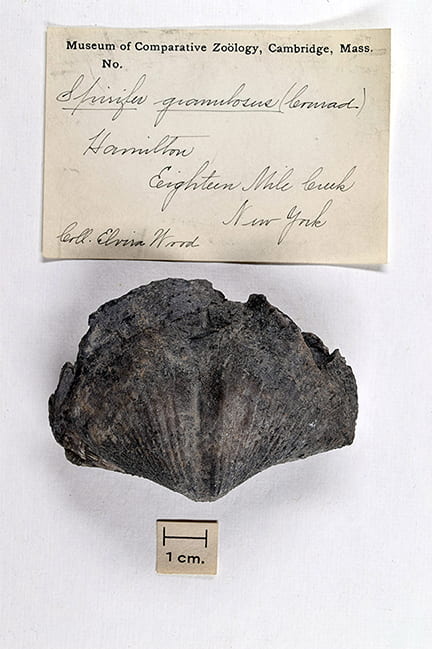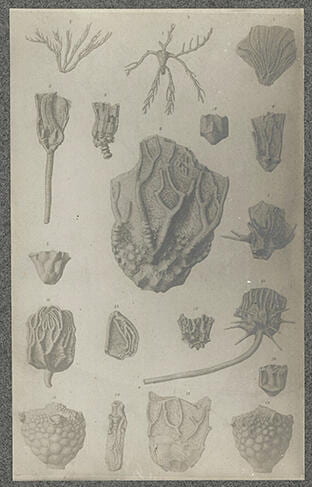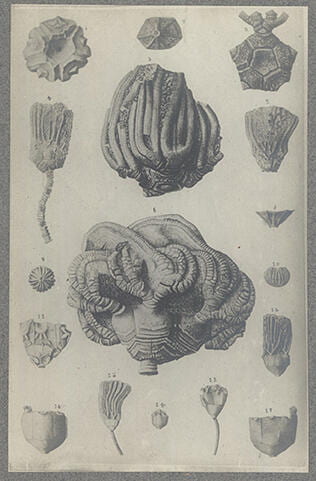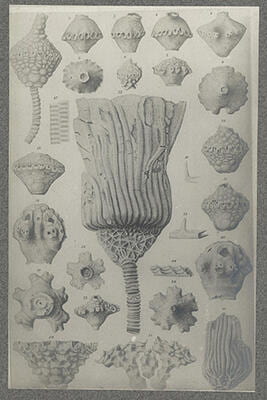Beyond The Museum
Professionals in Their Fields
Male curators and professors frequently published journal articles and even textbooks, but they only occasionally mentioned the women who worked alongside them at the museum.
While women assistants did essential work of classifying and cataloguing specimens, the museum’s official publications rarely credited their work.
By the early twentieth century, however, some women, such as Elizabeth Bangs Bryant and Elvira Wood, did publish their findings in journals and developed extensive professional networks.
By engaging with fellow scientists, they shared their expertise beyond the museum and contributed to broader knowledge within their fields.
Elizabeth Bangs Bryant
Elizabeth Bangs Bryant’s career at the museum spanned the first half of the twentieth century.
She studied at Radcliffe for three years but never completed her degree due to her father’s death, and she began working at the museum as a volunteer the following year in 1898.
Bryant worked closely with curators in entomology, and she was an expert on spiders. She was not paid a salary until the 1930s, when the museum’s director at last promoted her to Assistant Curator of Spiders.
Courtesy of the Museum of Comparative Zoology ©President and Fellows of Harvard College
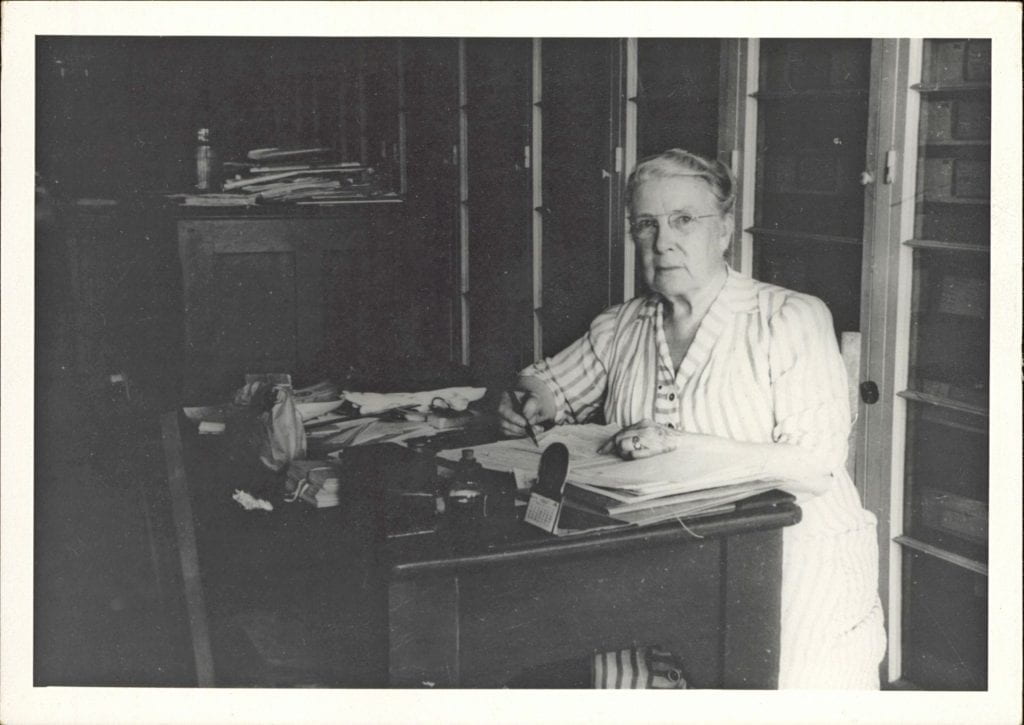
Bryant Type Jar and Spiders
Throughout her career, Bryant was known across the field for her ability to identify and name spiders, and she corresponded with fellow arachnologists around the world.
Writing to friends and colleagues, she often grumbled about the boring task of maintaining the spider collections, describing the painstaking work of refilling individual vials with alcohol to preserve the specimens: “It is a tiresome and disagreeable job but it has to be done.” Her care in maintaining the collections, however, helped ensure that these specimens would be available to future researchers. Pictured here is a jar of spiders labeled with her handwriting, and two of the specimens she donated, Amycus cambridgei (left) and Micrathena similis (right)
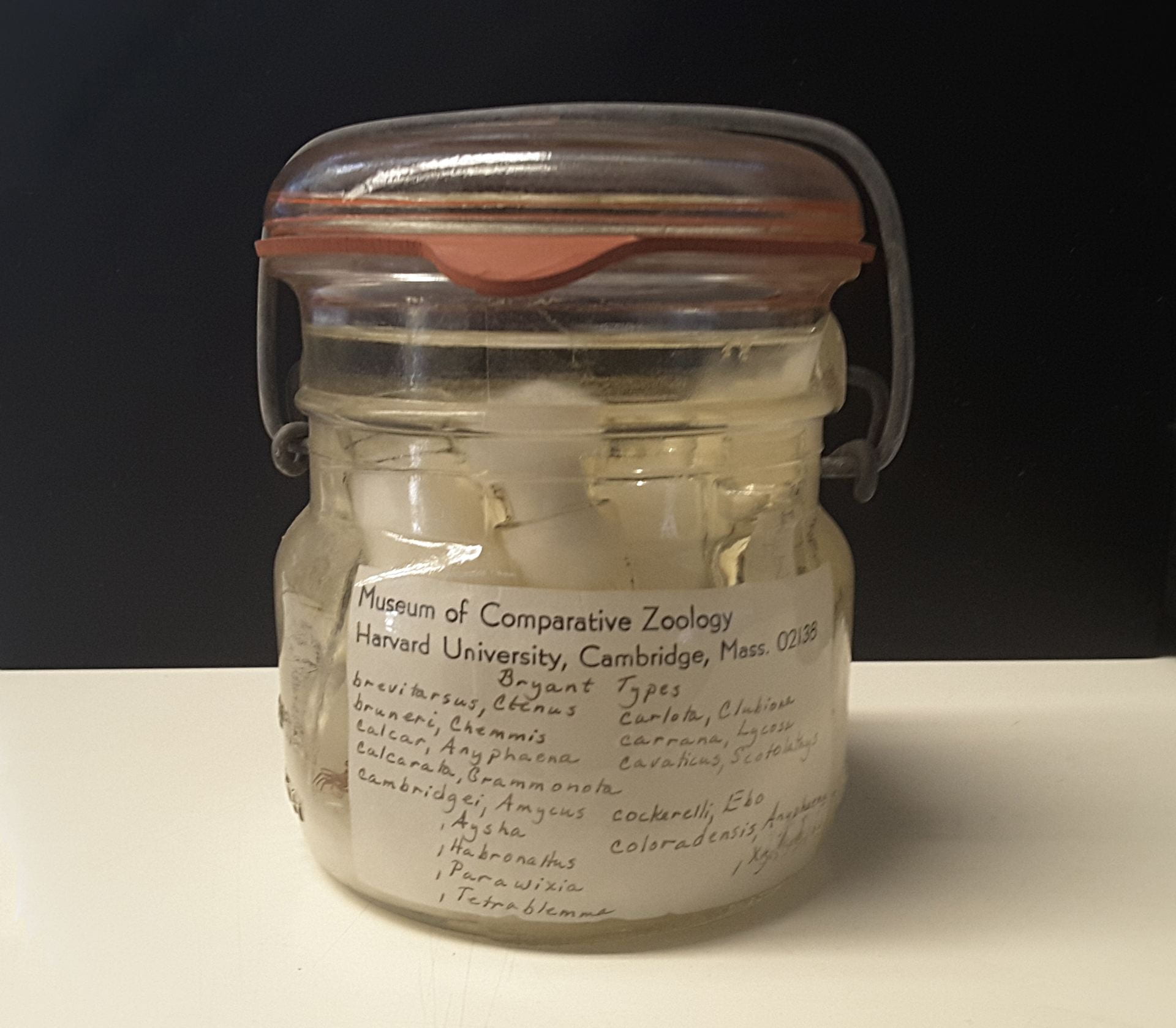
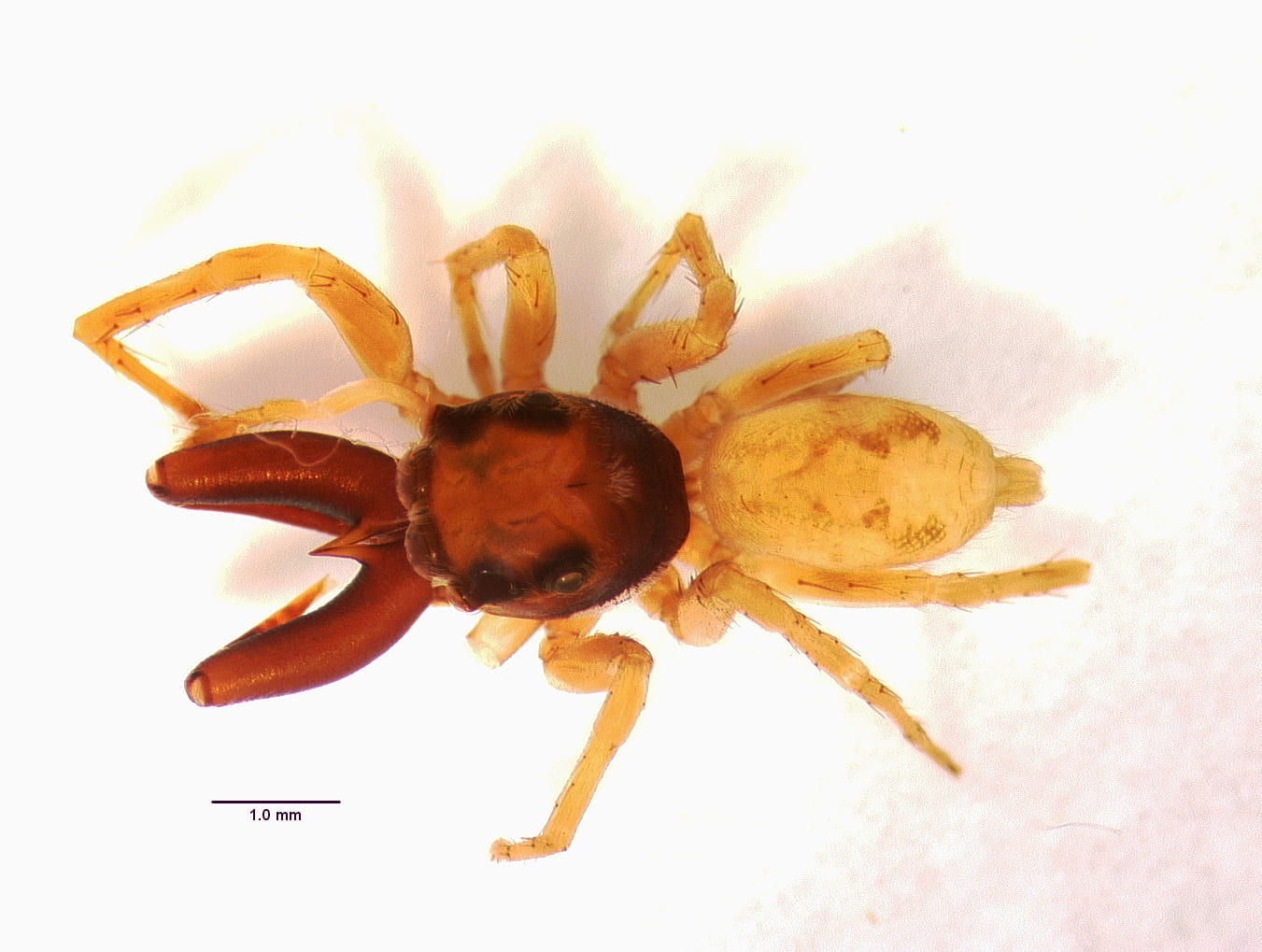
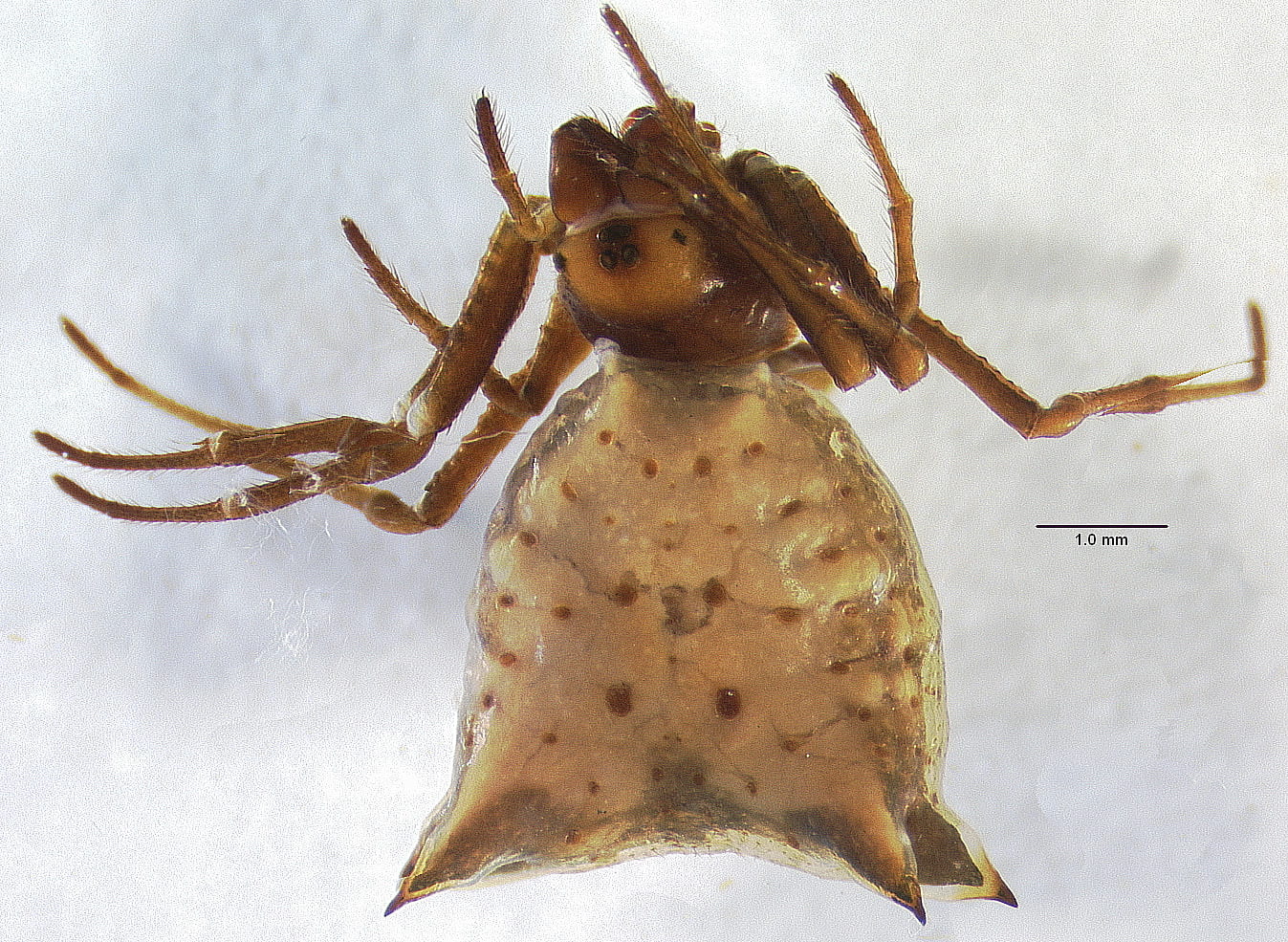
Elvira Wood was an expert on invertebrate paleontology who received her PhD from Columbia and taught as an instructor at the Massachusetts Institute of Technology. At Harvard, she served as Assistant Curator of Paleontology—the first woman to achieve this rank and title. Wood collected fossils, such as this brachiopod fossil from upstate New York, and published her own research on crinoids in academic journals for which she prepared these illustrated plates (below) to accompany her publications.
Courtesy of the Museum of Comparative Zoology ©President and Fellows of Harvard College
